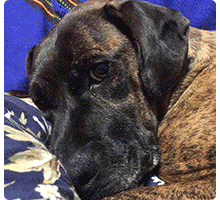I'm going to try something here that I've never done before. I'm going to try to give you a minute-by-minute account of the kind of thing that goes on in and just outside my studio here in the Appalachian foothills of southeast Ohio. Because so much happens in these posts, I'll have to break them up into several installments. But pay attention to the time signatures of the photos as you read, please.
Today I had the whole day to myself at home, a huge luxury and rarity. I got to do just what I wanted to. So I cranked up the music, cleaned my drawing table, and started work on a few pieces on South Africa. Part of my writing process involves staring out the window. Staring out the window a lot. And staring out the window in late summer in my sideyard is dangerous. Very dangerous. It all started with
a white-eyed vireo chattering and singing to himself in the birch just outside the studio window.
It's 9:54 AM, Monday, July 30.
I can't quite decide if this is an adult or a juvenile coming into adult plumage. I think a juvenile would probably still have dark eyes, so I decide it's an adult.
I turn my attention next to an indigo bunting in the Magnificent Bird Spa at 9:59 AM. Pretty, very pretty.
This is not just any indigo bunting. This is my Piper. He sings every morning right outside my bedroom window. More on him later.
At 10:47 a male eastern bluebird drops in for a bath.
At 11:55 the action starts heating up, with a brown thrasher keeling over in the hot sun to cook his feather mites.
He shuffles over to the edge of the trees, spreads his wings and tail, and lays down flat as a doormat.
What you see here is his elevated rump feathers, one tail feather, and both wings out to the side. His head is toward you.
This is the most extreme sunbathing pose I've ever seen, and it attracts the attention of this bird's sibling (they were both hatched in our black raspberry hedge on Dump Hill).
The thrasher's head briefly comes up. Do not adjust your dials. There is nothing wrong with this brown thrasher.
Dead birds don't preen.
it's Aliiiiive!!
Still panting, the young thrasher (note the light grey, not yellow-orange eyes) moves into the shade. It's going for noon and I've gotten very little done on my article.
Just a minute later, at high noon, an adult male hooded warbler (Nope, Zick--juvenile male--see correction below!) pops up in the arbor vitae about four feet from my face. Ahh. Look at you, peeking at me.
That's better. But you're almost too close for my telephoto!
and now you're definitely too close. Whew! Knocking me out! My friend Bob Mulvihill, PA bird ager/sexer/bander/researcher extraordinaire, wrote August 2 to advise that juvenile male hooded warblers get a full black hood in the same summer they're born. See the dipped-in-ink look of his tail? That, according to Bob, is a "fault bar," an indication that the entire tail grew out all at once. He further advises that the unhooded bird you see just below this one is a juvenile female. Female hooded warblers may attain a full cowl over the back of the head as they age (after hatch year), but they almost never get a full bib of black. Saw one like that just yesterday.

Four minutes later, a juvenile female hooded warbler sweeps in after the adult. There are just a couple of dark feathers in her nascent hood. (Bob says that a full adult hooded warbler would never be in such perfect smooth feather as these two--it would have very worn brown feathers visible in wing and tail this time of year). Thank you Bob!! So we've got two juveniles. No wonder they're so rowdy.
What a lovely little bird. She's chasing all around with the juvenile male. Fall birds are always messing around and mock-fighting. They seem to enjoy migration.
Round and round they go and where they'll stop...My article is never getting done. There's that crazy band on his tail again--check it out. Almost looks like a magnolia warbler's tail.
The aesthetics of the background aren't the best, but the birds absolutely adore looping in and out of the rusty old tomato cages I use to support the cardinalflower spikes. I'm not going for fabulous photography here. What I'm trying to do is show you the action, fast and furious as it is. I've shot all the brown thrashers and hooded warblers in less than ten minutes!
At 12:04, a juvenile scarlet tanager drops down to the Spa.
and is quickly joined by the male indigo bunting. Bathing birds beget bathing birds.
At 12:06, a worm-eating warbler suddenly pops out of the wiggling birch leaves. Holy Cow! Somehow I refocus from the spa and manage a decent shot. I'm pretty excited at this point.
He gives me a lovely view of his marbled undertail coverts
before a white-eyed vireo slams into him at 12:07:47 and displaces him from the perch.
The vireo mutters and sings, mutters and cusses as he works his way through my hummingbird garden.
I really like white-eyed vireos. They're sassy and mouthy, and if you listen closely, you'll hear all kinds of birdsong imitations in their litany.
The vireo briefly vanishes and its place is taken at 12:08 by a female indigo bunting only just now building her nest! By now I'm just laughing. The birds are arriving and switching places so fast I barely have time to get the lens on them before another one blows in. The bunting flies on a straight line east. I make a mental note to watch for her and try to figure out where her nest is.
Meanwhile her mate Piper is taking his umpteenth bath in the Spa at 12:08.
It's been just a bit over two hours and the birds just keep flooding in. I'm not done by a long shot. If you're not birding in late July and early August, you're missing an incredible show. More anon!
























































Tuesday, July 31, 2012
15 comments